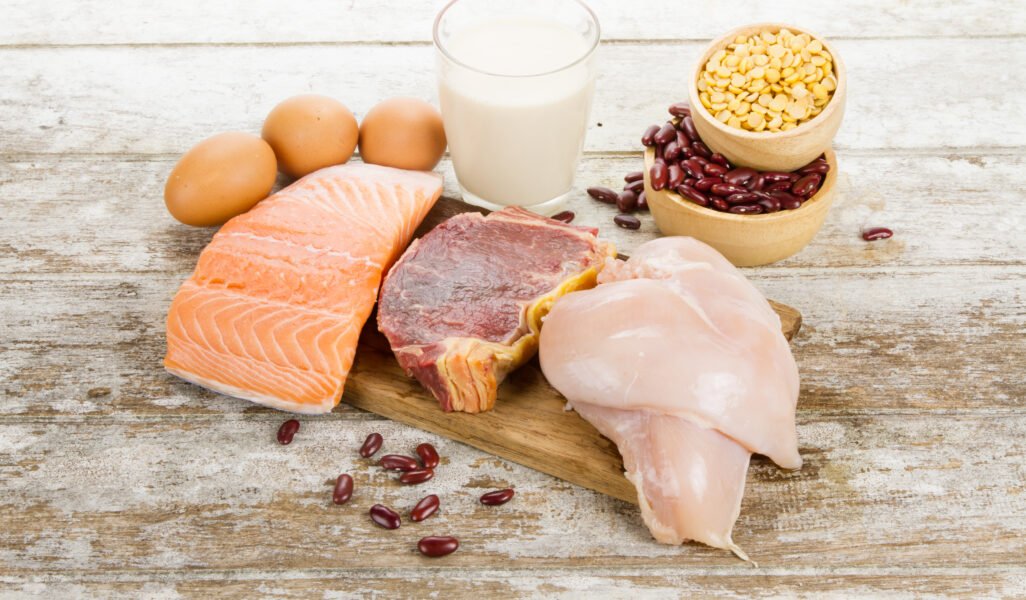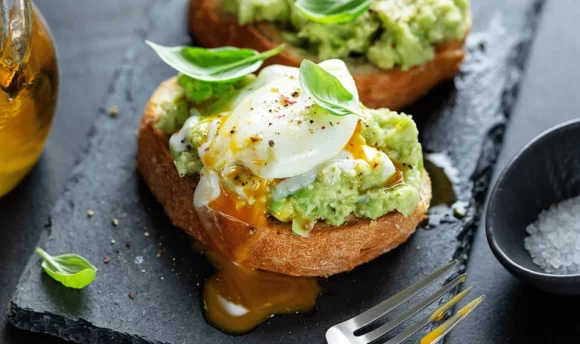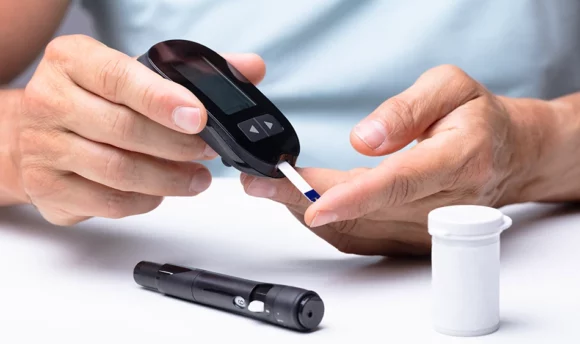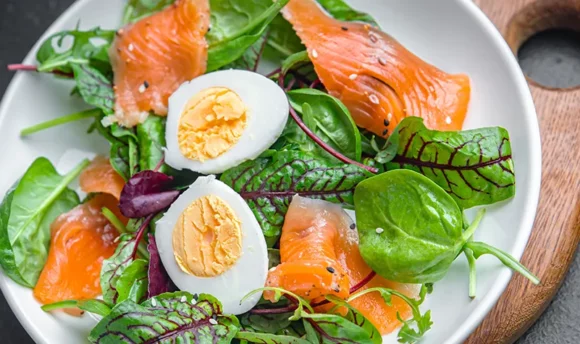Can a Keto Diet Cause Constipation? Causes and Treatment
Constipation can occur through routine or lifestyle changes. Following the ketogenic diet for the first time may hinder your bowel movements for a while. We explain why constipation on a low-carb meal plan happens and ways you can overcome and prevent this side effect.

Sudden changes to your diet might trigger constipation.
You may have irregular bowel movements or cramps that occur after eating meals. This is especially true if you recently switched to the keto diet.
The human body is used to consuming nutrients like carbs and sugar. Removing them completely will confuse your digestive system. This is why most keto dieters struggle with constipation for the first few days.
Fortunately, there are ways to soothe and prevent constipation. If you want to learn more about keto constipation and why it happens, keep on reading.
Can a Keto Diet Cause Constipation?
Yes, the ketogenic diet can cause constipation for some people. This is because your body has to adjust to the lack of carbs. Foods with a high fat content may also trigger temporary gastrointestinal problems like bloating, gas, and irregular bowel movement.
One reason for constipation is sudden dietary changes. Not eating your usual amount of carbohydrates may slow digestion until the body adapts. In the meantime, you might get constipation and related problems like back pain, headaches, and abdominal cramps.
You could also be missing out on important fiber. A study found that people only eat between 10–20g of fiber a day on the keto diet. It’s recommended that you get 30–50g of this essential nutrient if you want to prevent constipation and maintain good bowel movement.
Since most high-fat foods are dairy, it’s common for keto dieters to experience digestive problems. Lactose can be hard to digest, which triggers bloating, gas, and constipation. Dairy foods especially reduce butyrate bacteria – a bacteria that supports strong bowel function.
5 Reasons Why You Can Feel Constipated While on a Keto Diet
There are many reasons why you may get constipated on a low-carb diet. Suddenly changing what you eat is bound to confuse the body for a few days or weeks. Just remember that everyone is different, so it might take you longer to regulate healthy bowel movements again.
Here are 5 reasons why you may get constipation on the keto diet:
#1 Lack of fibers
Not getting enough dietary fiber every day will cause constipation. This is because your body needs fiber to increase the weight of stool while softening it. You don’t have to spend time straining on the toilet or feeling uncomfortable and bloated after eating low-carb meals.
There are also other risks associated with a low fiber intake. Some of these include hemorrhoids, diabetes, and heart disease. Research suggests that a diet without fiber cannot lower blood pressure or control the amount of LDL “bad” cholesterol circulating in your blood.
#2 Not drinking enough water
Dehydration is one of the major reasons for constipation on the keto diet. Your body will remove water from stool if you aren’t properly hydrated during the day. Because of this, the stool becomes hard when passing through your colon, which triggers constipation and pain on the toilet.
#3 Increased dairy products
Dairy products are thought to make some people constipated. Lactose is a sugar that requires a digestive enzyme called lactase to be further broken down in the body. People with lactose intolerance don’t produce enough of it and can experience milder or more severe digestive problems.
Once you follow a low-carb, high-fat diet with an increased focus on consuming dairy products, you might experience constipation even if you don’t have lactose intolerance. That is because your body may not be adjusted to high amounts of lactose.
#4 Lack of exercise
A lack of daily exercise on the keto diet can increase the time it takes for food to pass through your intestines. The body has more chances of absorbing water from stool and hardening it. In turn, you will find it difficult to pass dry stool, which causes uncomfortable pain.
Simple walks or long treadmill runs could support digestion. Those who sit down all day or don’t go out much throughout the week are slowing down their gastrointestinal tract. It’s recommended that people exercise regularly on a low-carb diet to boost weight loss.
#5 Alcohol and cigarette consumption
Drinking alcoholic beverages can dehydrate your body. This leads to dry stool and fewer bowel movements throughout the keto diet. The fewer alcoholic drinks you have in general, the easier it will be to keep your body healthy and achieve weight loss without the negative effects of constipation.
The same goes for smoking cigarettes. Nicotine affects muscle contractions that help pass stool through your intestines. A lack of movement while smoking is bound to cause constipation, so it’s worth limiting how much you have and finding ways to stop this habit completely.
5 Ways to Overcome Keto Constipation
You can overcome constipation by following a few simple tricks. Making small lifestyle changes may help you navigate the keto diet without facing any negative effects of keto flu symptoms. It will take time for your body to fully adjust to eating healthy fats with a low-carb intake.
Below are some simple methods for preventing keto constipation:
#1 Drink enough water
The recommended daily water intake is 9 cups for women and 12 cups for men. Reaching this amount can prevent constipation and keep your body hydrated. Drinking enough water on the keto diet may also contribute to weight loss since it reduces your appetite and cravings.
#2 Try to exercise constantly
Aim to get 30 minutes of exercise a day if you want to stay healthy. You could go for long-distance walks, high-intensity interval training sessions, weight training, and slow jogs. It just depends on what you’re comfortable with and how much time you have to exercise.
Even regularly moving your body is a good thing. Don’t spend too long sitting down, and take the time to walk around the house. Make small positive changes like walking to the store instead of driving there or taking 10 minutes out of your day to make a quick detour through nature.
#3 Eat more good fats
Consuming good fats ensures your digestive system has the energy to function. Some great foods comprise olive oil, coconut, avocado, salmon, chicken wings, and chia seeds. The usual recommendation is to get 70–80% of fat from your total daily calorie intake.
Remember that your body is using up all energy sources just to burn fat. It needs an alternative fuel source to keep you awake and prevent chronic fatigue or headaches. For those who struggle to eat high-fat foods, introduce them slowly in each meal to let your body adjust.
#4 Include more high-fiber foods
One way to boost your daily fiber intake is by consuming foods like avocado, chia seeds, cauliflower, coconut, raspberries, pumpkin seeds, and sauerkraut. Simply add some berries to your sweet breakfast or mix green vegetables with dinner to maintain a strong digestive tract.
You could also take fiber supplements to help you poop. Consuming a supplement in the morning will give your body the energy it needs to break down foods. Just remember to choose a product that contains natural ingredients and raw dietary fibers like psyllium husk from plants.
#5 Cut the bad habits while on a keto
Cut out bad habits that could potentially ruin your progress and trigger constipation.
Some habits might be smoking, drinking alcohol, and eating processed foods. It may be hard to break a routine, but it’s worth the effort if you want to lose weight and stay healthy. You can support the beneficial gut bacteria by eliminating these habits and consuming high-fiber foods.
FAQs
Constipation is an emergency when you have very few bowel movements a week. This could mean you have a blockage that stops food from passing through your intestines. Signs of serious constipation include cramps, nausea, painful bloating, and a loss of appetite.
Yes, constipation can cause temporary weight gain. Just be aware that this weight gain isn’t body fat. Most of that weight stems from excess gas, water retention, and undigested food. To feel healthy again, drink more water throughout the day and consume fiber-rich meals.
A Word From a MD
One way to prevent constipation is by introducing the keto diet gradually. You can start with having 50g of carbs a day and slowly lower that amount over the first week. The same goes for how much fat you eat when incorporating dairy products into your diet – you should up the amounts steadily to give your body time to adjust.
People forget that most starchy vegetables are not suitable for keto. This means you should consume foods like asparagus, broccoli, cucumber, and turnips when preventing constipation. Fruit and vegetables are the best at maintaining healthy bowel movements during ketosis.
To prepare your stomach for the keto diet, consider following the best gut health hacks. A few examples include taking a fiber supplement, eating probiotic foods, and avoiding sugar. These tips should strengthen your digestive tract and help you enjoy keto-friendly foods.
Conclusion
People may get constipation on the keto diet because they aren’t drinking enough water or eating high-fat foods. Also, the body needs time to adjust to the sudden lack of carbs. Consider drinking around 9–12 cups of water a day and stay active by going for morning walks or runs.

















































 Select your language:
Select your language: 








